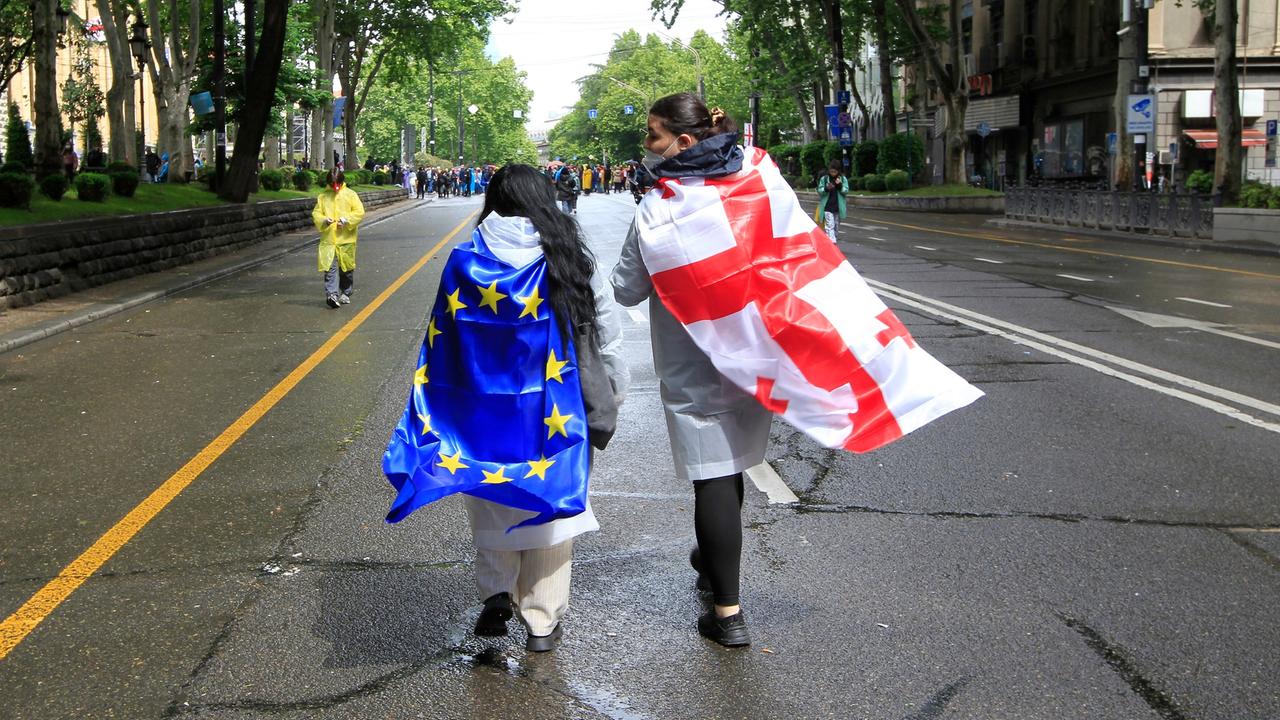It is a clear signal that Germany and France are sending to the government of Georgia: the controversial media law is hindering the European future of the Caucasus republic, said Scholz and Macron in a joint statement.
Germany and France have expressed their “deep concern” about the situation in Georgia. In a statement, they said that both countries note with deep regret the decision of the Georgian government and ruling party to deviate from the European path. The background to this is the adoption of a controversial law to limit foreign influence on civil society in Georgia.
Law “against common European values”
Georgia has had candidate status in the EU since the end of last year. According to surveys, more than 80 percent of Georgians are in favor of their country joining the EU and NATO.
The German-French statement states: “Our two countries have always supported Georgia's European path and actively supported the European Council's decision of December 2023 to grant candidate status.” With regard to the controversial law, it is stated that the Georgian government and ruling party acted against common European values and aspirations of the Georgian people. “Georgia's European path is mapped out – but Georgia will decide the speed and direction at which it will progress,” the statement said.
President vetoes
Georgia's President Salome Zurabishvili vetoed the law passed by parliament yesterday. The president, who is considered pro-European, described the law as “Russian in its essence and spirit”. However, her veto can be overridden by parliament.
Weeks of mass protests against law
The law restricting foreign influence on civil society in Georgia was passed in third reading by the parliament in Tbilisi earlier this week, despite weeks of massive protests by tens of thousands of people in Tbilisi.
According to the law, organizations and media that are at least 20 percent funded from abroad will have to register in the former Soviet republic as bodies that “pursue the interests of foreign powers.” Critics see parallels in this to the law against “foreign agents” in Russia, which allows the authorities there to take massive action against critical media and organizations.




